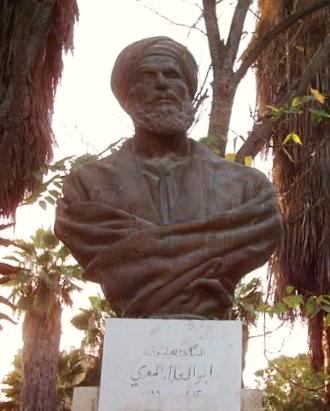I No Longer Steal from Nature
by Al-Ma’arri (973-1058)
You are diseased in understanding and religion. Come to me, that you may hear the tidings of sound truth.
Do not unjustly eat what the water has given up, and do not desire as food the flesh of slaughtered animals,
Or the white (milk) of mothers who intended its pure draught for their young, not noble ladies.
And do not grieve the unsuspecting birds by taking eggs; for injustice is the worst of crimes.
And spare the honey which the bees get betimes by their industry from the flowers of fragrant plants;
For they did not store it that it might belong to others, nor did they gather it for bounty and gifts.
I washed my hands of all this; and wish that I perceived my way before my hair went gray!
from “Studies in Islamic Poetry and Mysticsm” by Reynold A. Nicholson. Cambridge University Press, 1921, Cambridge, England.
Al-Ma’arri (973-1057), whose full name was Abu ‘L’Ala Ahmad ibn ‘Abdallah al-Ma’arri, was born in Ma’arra, south of Aleppo, Syria. He was recognized as one of the greatest Arab poets. He became blind at the age of four after being stricken with smallpox. While studying in Baghdad, then the center of learning and poetry, he wrote the Luzūm mā lam yalza (“Unnecessary Necessity,” also known as the Luzūmīyāt “Necessities”) , a large collection of verses that contrasted traditional works with its irregular structure, and his humanist opinions and critiques.
Al-Ma’arri was a rationalist who valued reason above tradition or revelation, and believed in the sanctity of life, urging that no living creature be harmed. At the age of thirty he became a vegan and advocated against the use of animals for food and fashion on ethical principles. The above poem was taken from a letter written in response to a chief Islamic missionary in Cairo, who requested information on why al-Ma’arri adopted a vegan lifestyle. Here, as in many passages of the Luzūm, he urges abstinence from meat, fish, milk, eggs, and honey on the grounds that the use of animals for food is an injustice to them, as it causes unnecessary suffering. On the same grounds he advocated against the use of animal skins for clothing, recommended wooden shoes, and chastises high-society women who wear furs.
He denounced superstition and dogmatism in religion, and lived as a philosopher for whom reason is a moral guide and virtue is its own reward. His critiques must have surely offended the privileged members of his society; Reynold Nicholson says of him, “Amidst his meditations on the human tragedy, a fierce hatred of injustice, hypocrisy, and superstition blazes out.”
